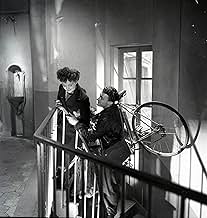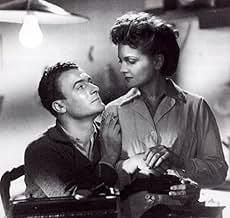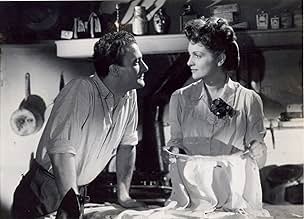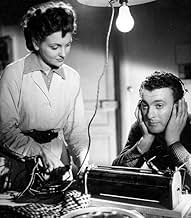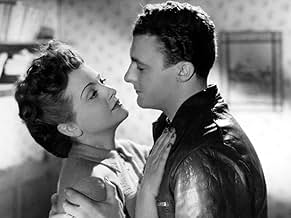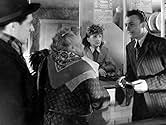Roger Pigaut(1919-1989)
- Actor
- Director
- Writer
Endowed with a pleasant appearance, Roger Pigaut was not just another matinee idol. Unlike too many of the young male leads of the 1930s and '40s, there was nothing bland about him. With his dark wavy hair, marked facial features and deep gaze, he could suggest at the same time the sweetness of romance and the roughness of the bad boy; he would have been wonderful in the role of Heathcliff, the repressed lover turned gruff and wild of "Wuthering Heights". For the record Pigaut did appear in a TV adaptation of Emily Brontë's masterpiece but it was not before 1970: he was 50 then, too old for playing Catherine's lover. Instead, he was Norwood, the narrator of the tale, a much less exciting character indeed. It remains that, then in the early stage of his career, he was at his best when there was ambiguity at stake, namely when the explicit virile appeal of his impersonation was at odds with his darker side. "Douce" (1943), Autant-Lara's masterpiece, is a good illustration of these two facets: Fabien, the estate manager he embodies first acts as a cynical manipulator only mimicking love for Douce but gradually genuinely falls for her. Even when he plays a straight guy, he is rarely pure and virginal. The lumberjack of "Sortilèges" (Christian-Jaque, 1944) hesitates between the "good girl" (Renée Faure) and the "bad girl" (Madeleine Robinson) while in "La rose de la mer", the young hero eager to restore justice finds himself forced to kill and to surrender to the police. As for the young husband of "Antoine et Antoinette" (Jacques Becker, 1947), the role he is best known for, he is likable on the whole f but can prove quite selfish: doesn't he hide from his wife that their national lottery ticket is winning and buy a sidecar, essentially for his own good ?
After such a good start, one could have expected a more flamboyant career development. Unfortunately too many films of modest ambition followed, which left not trace in the history of cinema. For one "The Bouquinquant Brohers" or "Une histoire simple" how many "Cartouche, roi de Paris", "La Peau d'un homme", "Un sourire dans la tempête", "Loves of Manon Lescaut' !
Which is why, conscious of the mediocrity of the films in which he participated in and, according to him, never very comfortable in acting, Roger Pigaut turned to an activity that satisfied him more, film direction. Between 1958 and 1975, while still appearing quite regularly on the screens, large and small, he then made five movies, among which are three detective films characterized by great technical skills and a gift for assembling impressive casts. "Comptes à rebours" (1970) for example brings together the confirmed talents of Michel Bouquet, Jeanne Moreau, Simone Signoret, Charles Vanel, Serge Reggiani, Jean Desailly and Marcel Bozzuffi. The same is true for "Trois milliards sans ascenseur" (1971) and "Le Guêpier" (1975). Unfortunately, pleasant and well directed as it is, this trilogy of crime proves a bit superficial and rather conventional. Despite everything, Roger Pigaut, also the author of a series of episodes of television series, will have succeeded in making a very atypical work, "The Magic of the Kite", a children's story made in China, of great fantasy and poetry. If only for this film, Pigaut must be included in the list of directors to be reckoned with.



